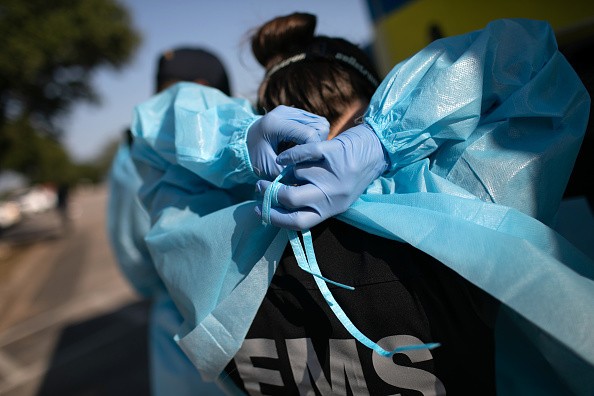CDC Finds Most COVID-19 Infections Spread Through Asymptomatic People

The Centers for Disease Control and Prevention (CDC) determined that most COVID-19 infections spread by asymptomatic people, worrying experts about the coming holidays.
A scientific brief released by CDC on Friday shows that asymptomatic people or those "who feel well and may be unaware of their infectiousness to others" likely account for more than half of the COVID-19 transmission in the U.S.
CDC's findings come at a crucial time when COVID-19 cases are surging higher than ever across the U.S. Other than that, the Thanksgiving holiday is also coming.
With people gathering for Thanksgiving, experts like Dr. Anthony Fauci, director of the National Institute of Allergy and Infectious Diseases, are worried that asymptomatic individuals may bring COVID-19 to the dinner table.
In the lecture UVA Medical Center Hour for the University of Virginia's School of Medicine last Wednesday, he said more "innocent occurrences" of the virus were happening from mid to late November.
Asymptomatic spread is most prominent among people meeting indoors because of the cold weather, Fauci said.
"That seems to be driving infections much more so now than the more obvious settings of bars and other places," he added.
Are Asymptomatic Infections The Only Drivers?
According to Nature, there is some evidence suggesting that 20% of infections display no symptoms.
But researchers are still divided about whether these kinds of infections act as a "silent driver" of the pandemic.
While research is expanding understanding of asymptomatic infections, practicing safety measures that date back to the early days of the pandemic is still encouraged.
People are still urged by experts to wear masks and practice social distancing, regardless of whether they have symptoms, to reduce viral spread.
It was one of the main points of CDC's update.
The CDC stressed that wearing a mask is form of two-way protection from the virus since it protects both the mask-wearer and the people around them.
This is why experts encourage states to put mask mandates in place.
A study by a team from the Institute for Health Metric and Evaluation, which was published in the journal Nature Medicine, suggested that over 130,000 lives could be saved if there was universal mask wearing.
Asymptomatic People are Less Infectious
Some data also said asymptomatic people actually transmit the virus to fewer people compared to those with symptoms.
According to Business Insider, the reason why that is the case is because asymptomatic individuals tend to expel less of the virus.
Still, experts warn that this false sense of security could be harmful to some people. This may also be why asymptomatic cases are considered to be the significant drivers in viral spread.
It is still unclear for how long asymptomatic people can be infectious.
In addition to this, some people may be infectious before the onset of symptoms. This is known as the "pre-symptomatic stage," or the day before you show symptoms.
This dangerous phase can be one of the days an infected person could be spewing the most virus.
As of Saturday, there are nearly 12 million coronavirus infections recorded in the U.S. and more than 250,000 people have died.
Subscribe to Latin Post!
Sign up for our free newsletter for the Latest coverage!
© 2025 Latin Post. All rights reserved. Do not reproduce without permission.















